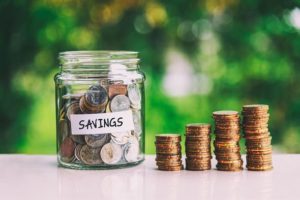Village Susu and Loans Association, empowering women in rural communities.
 Women in rural communities in Ghana are engaged in hazardous work just to make ends meet for their survival, yet, they are the point of reference for poverty due to lack of resources.
Women in rural communities in Ghana are engaged in hazardous work just to make ends meet for their survival, yet, they are the point of reference for poverty due to lack of resources.
Women, who are described as the drivers of the world economy, these women engage in all sorts of tedious work from farming, production of cassava and corn dough, labouring on farm plantations and gari and palm oil processing, mining, petty trading, among others.
Since these are informal jobs, they have no fixed salary or allowances to depend on, no conditions of service. no access to healthcare neither do they have access to loans to expand their businesses.
The United Nations (UN) estimates that over 74 percent of women in non-agricultural jobs are in the informal sector, and “working in this sector often leaves without any protection of labour laws, social benefits such as pension, health insurance or paid sick leave”.
They routinely work for lower wages, which cannot improve their livelihoods, resulting in more elderly women living in poverty as a result of their low incomes and economic conditions, according to the UN statement on Women in the informal sector.
In theory, women should be putting aside more money to help them maintain their lifestyles later in life. And yet, women on average are still earning less than men and there are fewer of them in senior positions. Consequently, women are left feeling lost and unprepared, facing considerable financial challenges.
The International Child Development Program (ICDP) a non-governmental organization is changing this narrative through a Village Susu and Loans Association (VSLA) at Otwetiri and Saforo, rural communities in the Akuapem North District in the Eastern Region.
Women in these communities are provided with basic training in money keeping and are put into groups where they make savings ranging from Gh¢5 to Gh¢20 cedis daily from their trading activities. As the money grows, these women are given soft loans to expand their businesses and improve their livelihoods.
Through this, over 200 women’s livelihood and living conditions have been improved significantly. Now, they are able to take care of their families and seeing to the educational needs of their children, especially their female children. They are also able to contribute towards developmental projects in their communities.
“Through VSLA, I now have access to a loan with little interest to expand my gari business and in turn, I have been able to send two of my children to Senior High Schools,” Ama Obuor, one of the beneficiaries, told the GNA with all smiles on her face.
Ms Joyce Oye, a petty trader told the GNA that she took a soft loan from VSLA in her community to expand her business adding, but for the VSLA, she could not have raised such money.”
“I have now been trained by ICDP in soap making and I am now a member of the VSLA, so, I have something to depend on without relying on my partner for my needs” she said with joy.
Mrs Joyce Larnyoh, Country Director, ICDP, indicated that VSLA had not only empowered the women economically, but socially since they now understand their rights and responsibilities especially towards their children and their communities’ development.
“We used the VSLA as a mobilizing tool to get these women on board our activities to educate them on the rights and responsibilities as parents towards their children, sexual and gender-based violence as well as other civic issues, which hampered developments in rural communities, she said.
“Women in rural communities are engaged in various work activities but they lack the ability to save money. For some reasons, these women get the money, but they always have the mentality that they are poor and cannot take care of themselves and their children,” Mrs Larnyoh noted.
With the ICDP susu model, we provided them with large metal boxes, padlocks, stationery and trained them in record keeping, savings and financial management as well as leadership skills to manage their own susu, savings and the loans disbursement.
Now, women in these communities are able to access loans ranging from GH¢1,000 to GH¢5,000 with a little interest and they are able to pay back without default due to the expansion in their work activities and the robust communal system we have put in place all geared towards their empowerment in the communities.
The VSLA has proved to be a potent mobilizing tool for women empowerment in these communities and we hope to replicate this in other communities to further achieve our objective of empowering women and their communities for national development, she added.
By Bertha Badu-Agyei
Source: GNA
